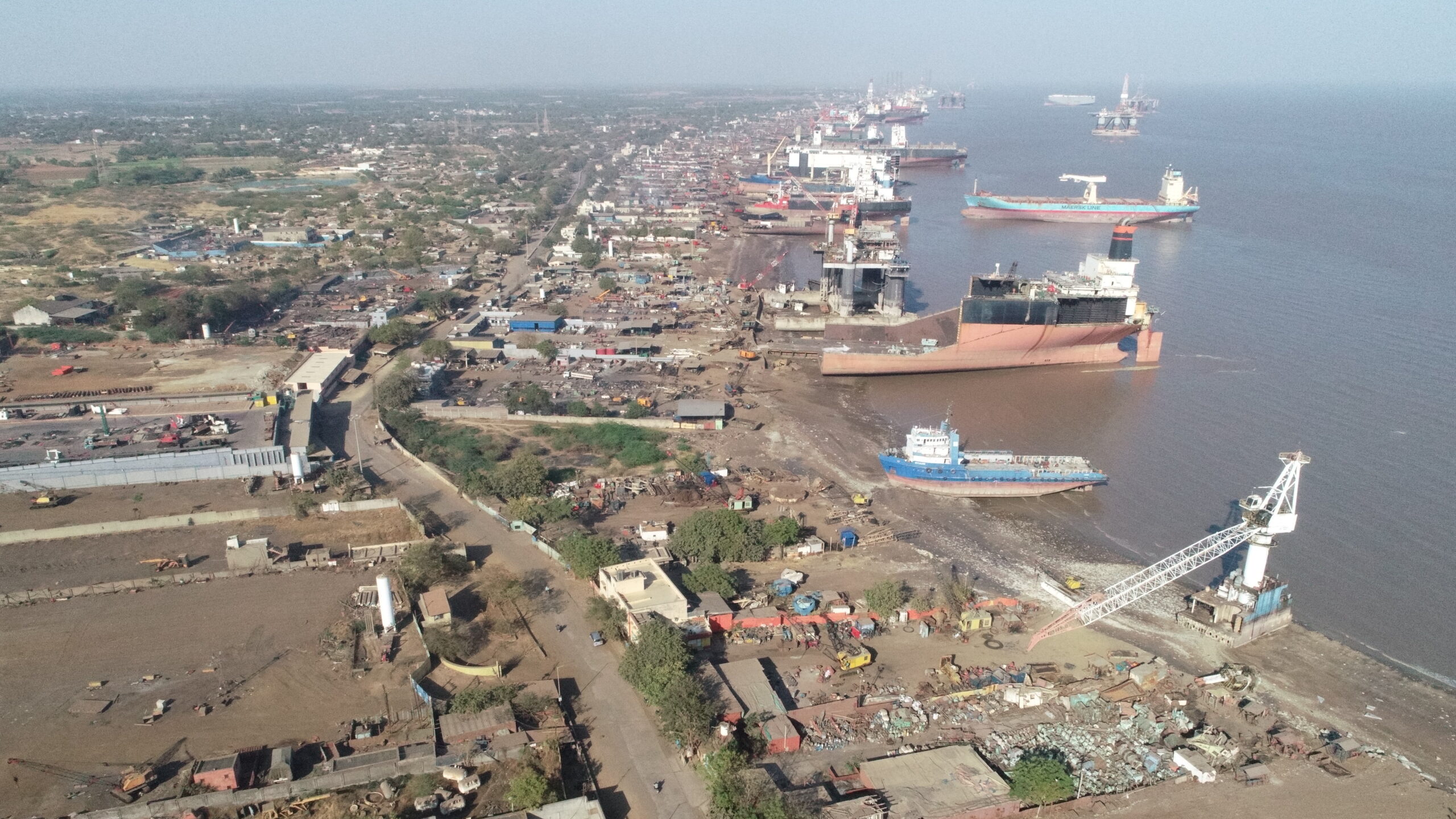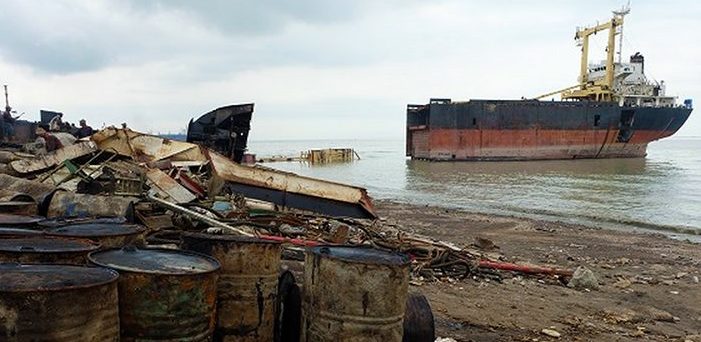B.C. Coastal Residents Lawyer Up to Combat Shipbreaking Operation
Residents of Baynes Sound, located south of Courtenay on Vancouver Island’s Central East Coast, have taken a decisive step in their fight against a contentious shipbreaking operation that they claim is polluting the pristine waters of the Salish Sea. Frustrated by the provincial government’s inaction, the community has hired environmental lawyers to strengthen its case against the industrial activity.

The shipbreaking operation dismantles aging, derelict vessels along the shoreline, purportedly releasing harmful contaminants such as copper, lead, and zinc into the surrounding marine environment. Residents say these pollutants jeopardize the health of local ecosystems and the livelihoods that depend on them, prompting an outcry from the community.
Pollution Concerns Spark Legal Action
Environmental lawyer Carla Conkin, representing the residents, expressed grave concerns about the ongoing operations’ environmental and emotional toll.
“These folks are getting increasingly traumatized and concerned about the circumstances given what’s happening with this shipbreaking operation,” Conkin told Global News. “Essentially, we’ve got beached vessels, unlined sumps, and pollutants seeping into the marine environment, and nothing’s being done about it.”
A recent investigation by environmental lawyers has bolstered the community’s claims, suggesting that the provincial government may be violating the federal Fisheries Act by failing to take sufficient action against the shipbreaking operation. This legislation is designed to protect fish and their habitats from harmful substances, making the allegations particularly serious.
The residents argue that the toxic runoff from the shipbreaking activities poses a direct threat to the area’s marine biodiversity, which includes fish, shellfish, and other aquatic life forms vital to the region’s ecological balance.
Baynes Sound: A Critical Ecosystem Under Threat
Baynes Sound is part of the Salish Sea, a body of water renowned for its rich marine biodiversity and cultural significance. The area supports thriving populations of oysters, clams, and other shellfish, which are central to the local economy and Indigenous food systems.
The pollution risks associated with the shipbreaking operation have alarmed residents, environmental advocates, and local businesses alike. Shellfish harvesting, in particular, is a cornerstone of the region’s economy and identity. Contamination of these waters threatens not only the environment but also the livelihoods of those who depend on clean, healthy seas.
“This isn’t just about environmental protection—it’s about safeguarding a way of life,” said one local resident involved in the campaign. “We cannot afford to let an operation like this jeopardize the future of our community and our coastline.”
The Government’s Role Under Scrutiny
The provincial government’s perceived inaction has been a focal point of frustration for Baynes Sound residents. While the community has raised concerns for years, they argue that authorities have been slow to respond or enforce environmental protections.
The legal team assisting the residents contends that the provincial government’s lack of intervention constitutes a failure to uphold its responsibilities under the Fisheries Act. This federal law prohibits the deposit of deleterious substances into water frequented by fish unless specifically authorized.
Critics argue that regulatory gaps have allowed the shipbreaking industry to operate with insufficient oversight. Environmental advocates are now calling for stricter regulations to ensure that shipbreaking operations adhere to best practices and prevent harmful pollution.
Building Momentum for Change
The battle against the shipbreaking operation has galvanized residents and advocacy groups, with growing calls for accountability and reform. Public meetings, petitions, and grassroots organizing have brought attention to the issue, drawing support from environmental organizations across British Columbia.
For many, the hiring of legal representation marks a turning point in the fight. By leveraging the expertise of environmental lawyers, the residents hope to compel the government to enforce existing laws and halt activities that threaten their coastline.
“The Salish Sea is too precious to be treated as a dumping ground,” said another resident. “This is about protecting our environment for future generations. We will not stand by and let it be destroyed.”
Broader Implications for Coastal Communities
The struggle in Baynes Sound highlights broader concerns about the environmental impacts of shipbreaking operations across Canada. While the dismantling of ships is a necessary process, critics argue that it must be conducted responsibly to minimize harm to the environment.
Unregulated or poorly managed shipbreaking activities can result in significant environmental damage, including the release of hazardous materials such as heavy metals, asbestos, and oil residues. The Baynes Sound case underscores the urgent need for comprehensive oversight and enforcement to ensure that such operations are conducted safely.
A Community United
As the legal battle unfolds, the residents of Baynes Sound remain steadfast in their commitment to protecting their coastline. Their efforts reflect a broader movement to hold industries and governments accountable for their environmental impact, ensuring that communities have a voice in safeguarding their natural resources.
For now, the future of Baynes Sound remains uncertain, but the community’s determination sends a clear message: the fight to protect the Salish Sea is far from over.
Author: shipping inbox
shipping and maritime related web portal








